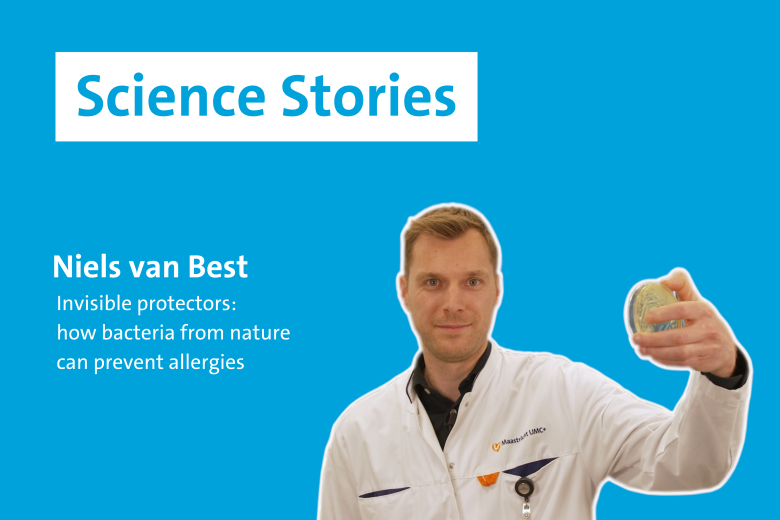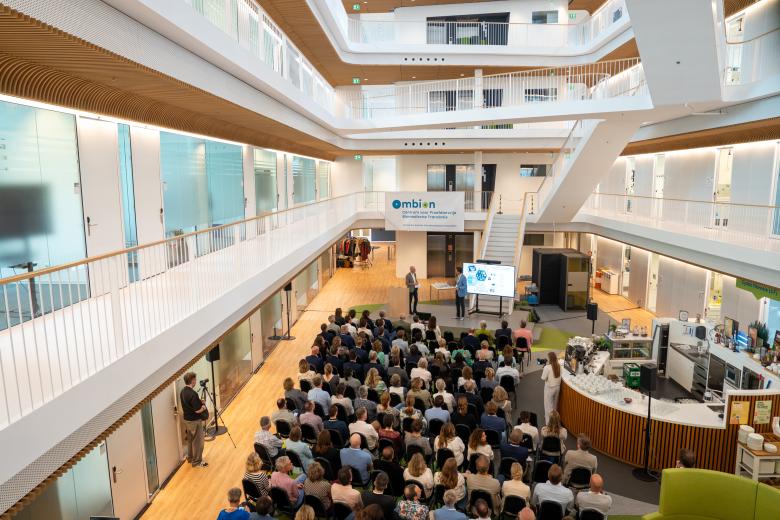Workshop: Research Support at Maastricht UMC+
Workshop brings broad research support at MUMC+ one step closer.
‘It’s essential to identify the client first and figure out what they want.’
It’s nearly 5 pm when Frits van Merode concludes a day of spirited debate on the subject of research support with a brief appeal to the room. ‘Over the next three months, you will be continuing in working groups. It’s essential to identify your client first and figure out what they want – whether they’re in The Hague, Brussels or right here at MUMC+. It’s about finding out what research services are valuable to them and what obstacles there may be to providing them with those services’, he says. Finally, he thanks the participants for ‘this fantastic day, your contributions and your proactive engagement.’
Eight hours before, Nanne de Vries had kicked off the day-long workshop, officially titled ‘Research Support at Maastricht UMC+’. The aim of the meeting is to improve and expand the support available when acquiring assignments and undertaking scientific research.
‘If we truly want to make MUMC+’s ambitions into a reality, we need more external research funding, and we need to do an even better job at conducting research. That’s why we want the new MUMC+ policy for research support to have a broad scope. We’re striving for transparent, flexible, centrally-coordinated research support that can anticipate current developments’, says Nanne de Vries. He is very pleased with the large turnout and the fact that different worlds are joining forces as part of this project. ‘After all, together you have a wide range of expertise at your disposal, ranging from research to policy and management. Having people from different fields on board also creates broad support for what we do here’, he tells the researchers, doctors and other professionals in the room.
Business Model Canvas
It’s not the first time that research support has been the topic of a meeting. After a kick-off meeting on 2 February and a first brainstorming session on 14 April, the first outlines of a plan for research support were already drawn up using the so-called Business Model Canvas. Divided into working groups, the participants at today’s workshop explore this plan by focusing on five topics:
- Funding
- Data Management
- Registration & Monitoring
- Management
- Quality Assurance & Control.
They are tasked with developing the model for each of these topics in further detail, focusing on the customer’s perspective. Frits van Merode gives a separate explanation of the Business Model Canvas for researchers who are getting involved for the first time. He does this by citing four inspiring examples: Tesla’s electric car, the Cirque du Soleil, the prosthetics created by Kenya-based Jaipur Foot and the Aravind chain of eye hospitals in India. All of these are success stories in which the founders took the time to get to know the customer and kept asking themselves what it was that they found most valuable. And that’s exactly what Frits van Merode urges the participants to do in further developing the model. He emphasises that the end result will not be static, but has to be a dynamic model that can transform itself to keep in step with external developments.
Discussion
After a morning full of intensive discussion in the five working groups, the second part of the day is dedicated to a plenary session, with each of the working groups showing how they have further developed the Business Model Canvas for their topic. Two representatives of the MUMC+ Client Council join this part of the meeting: Elfriede Schropp and Jahir Scoop.
Mariëlle Snijders from the Netherlands Organisation for Health Research and Development (ZonMw) – an important partner and sponsor for health research – is also present. She, too, gets involved in one of the debates that arise from the presentations. ‘The Netherlands Ministry of Health, Welfare and Sport are our biggest client’, she says. ‘I think it’s good to be aware that the climate is shifting in central government. The government wants to focus more on research with practical applications, and attaches great importance not only to the quality, but also the social relevance of the research that is conducted.’
Later on, she will add that the Ministry of Health, Welfare and Sport wants to know from the outset the potential yields of any investments in research, and that MUMC+ will have to explore more avenues to obtaining funding for research, for example by developing closer ties with local government authorities and insurance companies. Jahir Scoop, in turn, advises the participants to provide more frequent updates for patients participating in studies. ‘If you make sure to keep patients informed, they will be more inclined to participate in research again in future’, he says.
Finally, Bart Haex, one of the project’s organisers, explains which steps are to be taken in the immediate future. ‘The plan is that, over the next three months, you will generate the content for a business plan, to subsequently be developed in greater detail by the project team. Once that’s been completed, we will convene again.’
Also read
-
Invisible protectors: how bacteria from nature can prevent allergies
In this video, Niels van Best explains his research on how bacteria from nature can strengthen the immune system of young infants.

-
Nationwide project for animal-free biomedical research on osteoarthritis launched
Tim Welting (CAPHRI) and his team will develop human cell-based models to accelerate development of osteoarthritis medication.

-
Study Smart gets Dutch Education Premium
Maastricht University's (UM) interfaculty educational innovation project Study Smart is one of the three winners of the Dutch Education Premium 2025. This was announced on Tuesday during the Comenius festival in The Hague.
